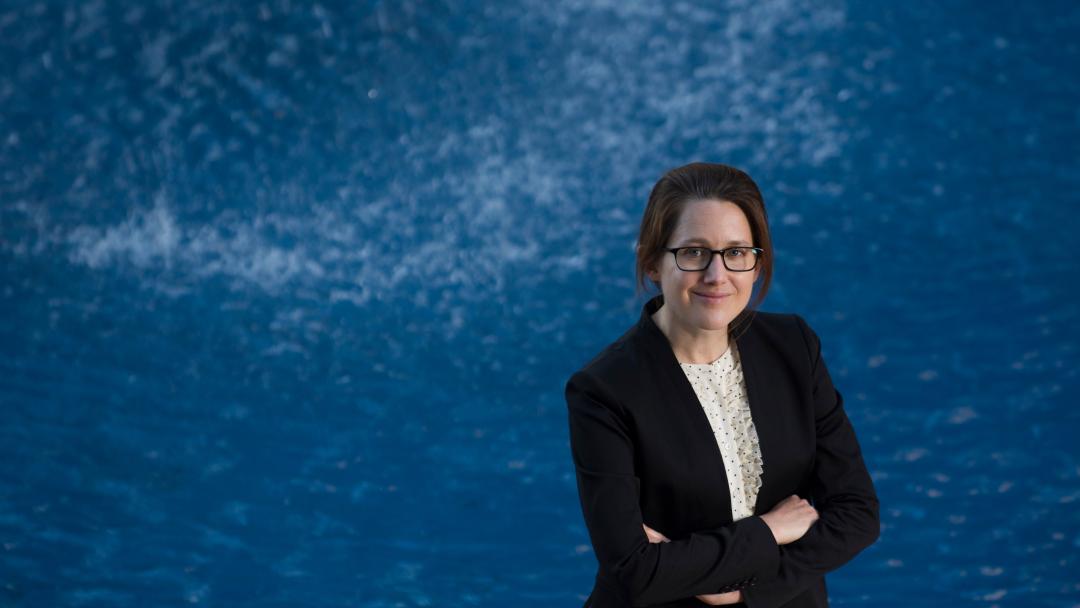
Maura Allaire, assistant professor of urban planning and public policy, is working on a project that aims to shed light on an often overlooked issue — access to affordable and reliable wastewater services. Photo by Steve Zylius
Allaire assesses disparities in wastewater infrastructure
Maura Allaire, assistant professor of urban planning and public policy, and Ph.D. student Qi Bing are collaborating with researchers nationwide on a project that will pilot a sustainable approach to wastewater treatment in underserved communities in the Black Belt region of rural Alabama.
The project, sponsored by Columbia World Projects with a $570,000 grant, aims to demonstrate that better wastewater treatment systems can yield health, economic and environmental benefits for rural communities in the United States and around the world.
“This project aims to shed light on an often overlooked issue — access to affordable and reliable wastewater services,” Allaire says. “Our team will identify communities in need and analyze trends in wastewater disparities. Resolving these gaps will benefit the health and livelihoods of people in Alabama and beyond.”
In 2017, the American Society of Civil Engineers gave the United States a D+ grade for its national wastewater infrastructure. Across the country, wastewater and sanitation systems are failing, contaminating water supplies, causing parasitic infections and harming ecosystems. These challenges are particularly acute in low-income rural areas such as the Black Belt region of Alabama, where many households do not have access to the centralized wastewater treatment offered in most U.S. urban areas through public utilities.
Alternatives like septic tanks often are incompatible with local soil and too costly for low-income households to maintain. Many instead opt for what is locally known as a “straight pipe” discharge — sending untreated wastewater from toilets to a nearby pit, ditch, stream or waste ground.
The “Transforming Wastewater Infrastructure in the United States” project aims to provide alternative wastewater treatment solutions that can be implemented in a manner that is equitable, technically feasible and financially sustainable. At select pilot sites, the project will install and test new wastewater treatment systems that are clustered and decentralized, connecting neighboring homes or businesses in a single system that collects, treats and reuses water, reducing the cost of upkeep.
Data on how to adopt such treatment systems will be collected and published on an open-source platform, so that governments and rural communities worldwide that are affected by this problem can benefit from what is learned. The project will also seek to provide further evidence of the negative health impacts of using “straight pipe” discharge.
Allaire and Bing are collaborating with representatives from the Consortium for Alabama Rural Water and Wastewater Management, researchers from the University of Alabama, the University of North Carolina, the University of South Alabama and Columbia University, and state and federal officials.
The project aims to provide immediate benefits to households at its pilot sites, including demonstrable improvements in public health and a reduction in toxic discharges to the environment. It will also provide a model for transitioning to a more resilient and sustainable wastewater infrastructure, which could be deployed throughout Alabama, the United States and the world. Ultimately, this project endeavors to provide historically disenfranchised communities access to a basic resource: safely treated wastewater.
For more information about the project, visit the website.
Contact:
Mimi Ko Cruz
Director of Communications
(949) 824-1278
mkcruz@uci.edu